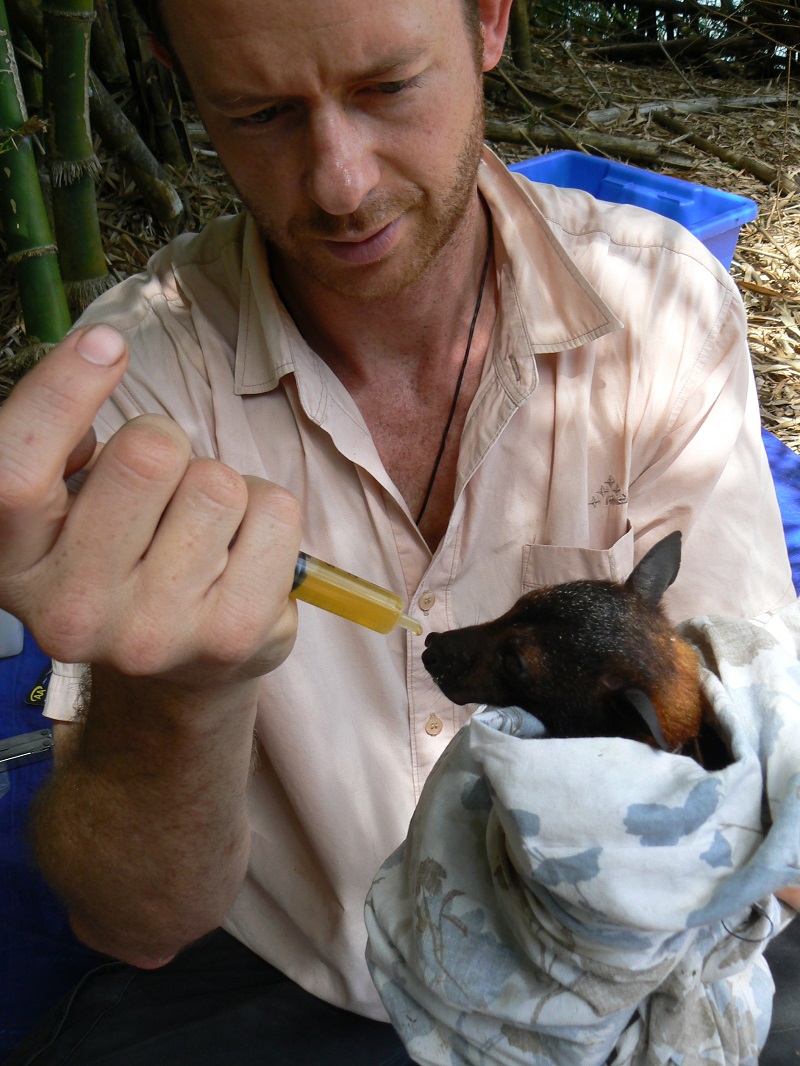What does a Veterinary Epidemiologist do?
In this role I manage projects in national and international veterinary public health, write scientific research reports, and am on call for outbreaks of notifiable disease in the UK. My role entails protecting the world from diseases transmitted by animals.
What do you work in and what is your specialty?
I am a Veterinary Epidemiologist with the Animal Health and Veterinary Laboratories Agency, Weybridge, United Kingdom.
How did you become interested in this area and when did you first start?
I started my career as a veterinarian, working in private practices and zoos around Australia and the UK after completing my veterinary science degree at Murdoch University. While working, I completed a Master of Science in Wild Animal Health at the Zoological Society of London, collaborating with the Queensland Department of Primary Industries to develop a test for the detection of Hendra virus antibodies.
I decided to return to study full time to complete my PhD at The University of Queensland. I wanted to gain more active involvement in science and research projects and contribute to the study of wildlife diseases.
What study path have you taken to get here?
I completed a PhD in Veterinary Science. I chose UQ for the opportunity to work with a unique team of people on an exciting area, with support from the Australian Biosecurity Cooperative Research Centre. I really enjoyed the opportunities presented by my PhD to collaborate with scientists and animal health officers from around the world and share knowledge and skills. One of the highlights of my project was carrying out fieldwork in remote parts of Papua New Guinea, East Timor and Indonesia. On completion of my PhD I moved back to the UK to work in my current role with the Animal Health and Veterinary Laboratories Agency.
What do you like most about your job?
I like working in multidisciplinary teams on wildlife disease epidemiology that produces relevant scientific outcomes for human and livestock health as well as conservation. I now work with a range of teams to improve animal and human health and increase understanding of wildlife diseases. I enjoy making direct contributions to government policy and gaining a better understanding of disease transmission among animals and humans in order to prevent outbreaks.
Do you have any particular career highlights?
Either trying to locate, capture and sample fruit bats that roost in caves in Cyprus for a project on emerging zoonotic viruses with pandemic potential, or teaching aspects of epidemiology and risk assessment to animal health staff from 15 African countries at a workshop in Nigeria.
What advice would you give to someone interested in working in this area?
My university friends and connections assisted me in finding a job. They put me in contact with world leaders in my field and supported and encouraged me to build collaborative networks and seek opportunities to gain recognition for my work.

Name
Andrew Breed
Career
Veterinary Epidemiologist
Animal Health & Veterinary Laboratories Agency
